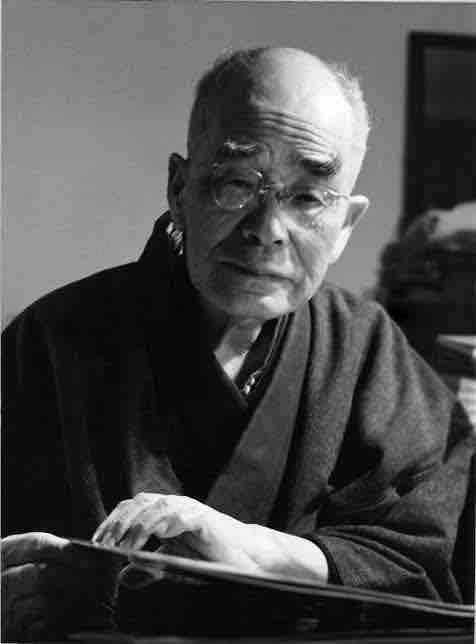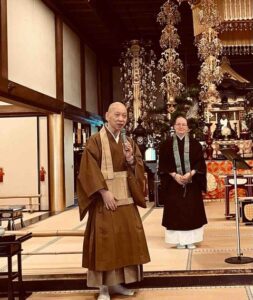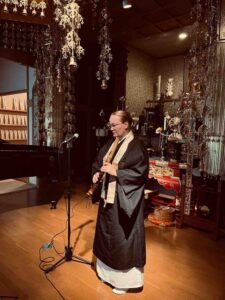Amida is our innermost self
日本の仏教学者である鈴木 大拙の真宗の解釈は新鮮で面白いです。私の疑問にストレートに答えてくれるから、有り難いです。
「the Pure Land is right here」
お浄土は死後にいくところではなく、今ここにある。
Suzuki proclaims that just as Amida is within us, so is the Pure Land. There is no need for us to go out of this world to be born in the Pure Land.
お浄土に生まれる為には、この世を出る必要がないです。阿弥陀もお浄土も、私たちの中にあるもの、だと。
「We carry the Pure Land within us all the time. Being born in the Pure Land means discover the Pure Land in ourselves. 」
お浄土は常に私と共にある、お浄土に生まれるというのは、自らの中お浄土を見つけ出す事です。
日本語の表現は適切かどうかは分からないですが、英文を直訳すれば、このようなニュアンスになります。
昨日はMichael Conway と浄土論註の英訳についてオンラインで語り合いましたが、言葉をどのように翻訳することによって、雰囲気が随分変わります。
しかし、「本願」や「信心」は今の私たちにはなかなか理解できない仏教用語になってきました。実際には説明ができないかもしれないけど、今の私たちは言葉の世界に生きているからこそ、言葉で言い表わすなら、何になるのかな、と考える事は大切でしょう。
Michaelは
「本願」を innermost aspiration
「信心」を acceptance and insight
と言い表しています。分かりやすいな、と思います。
また、鈴木大拙は真宗とキリスト教を比較するのが好きですが、
Duality between humans and God, versus the Oneness between humans and Amida.
Duality は自分の外にある神様と自分を意味しています。
自分の外にある阿弥陀ではないから、Oneness, 本来一つである、という言い方をされています。
「When the seeker recites Namu Amida Butsu, Amida and the seeker become one 」
お念仏を称える事によって、阿弥陀と私が一つになる。
「Amida is our innermost self」とまで言い切ります。
When we pronounce Namu(Self power) and Amida (Other power), Namu Amida Butsu symbolizes the unification of 法and 機, Amida and Bompu, Shaba and the Pure Land.
「機法一体」そのものです。


